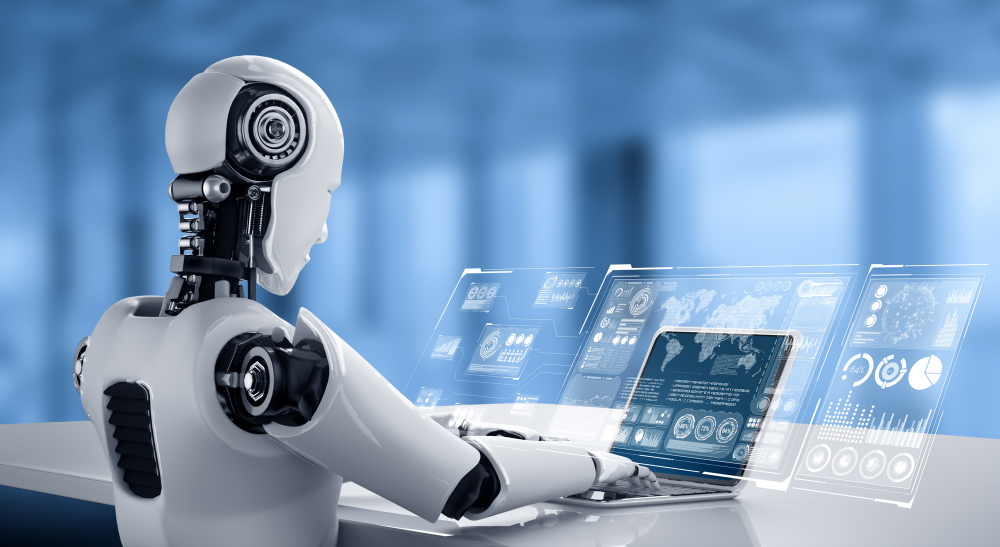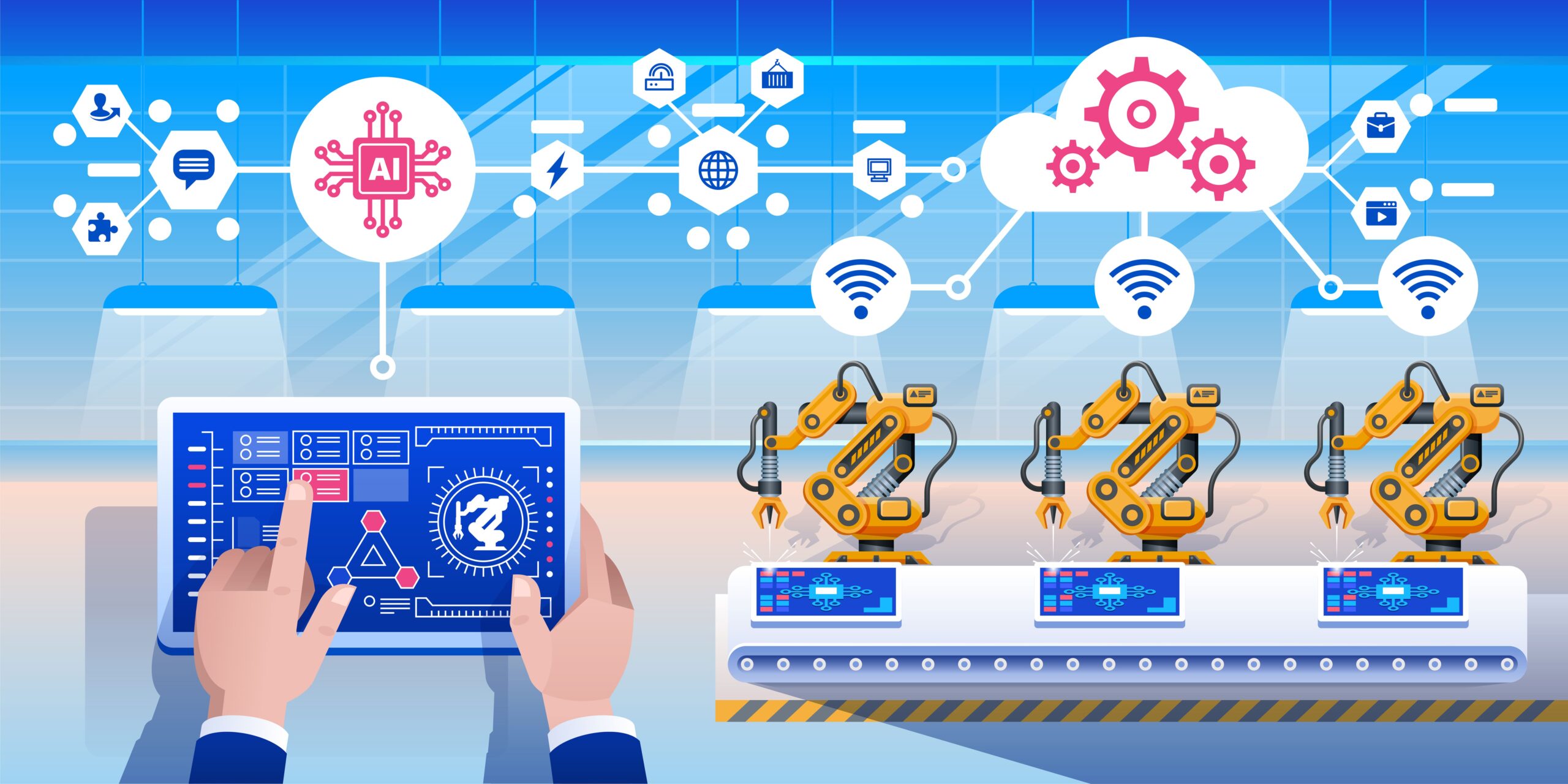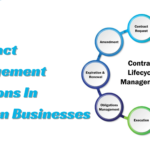How Robotic Process Automation is Changing the Future of Businesses
- 1 10 Benefits of Robotic Process Automation Technology for Business
- 1.1 Enhanced Efficiency and Productivity
- 1.2 Cost Savings
- 1.3 Improved Accuracy and Compliance
- 1.4 Scalability
- 1.5 Faster Process Execution
- 1.6 Improved Customer Experience
- 1.7 Data Accuracy and Analytics
- 1.8 Integration Capabilities
- 1.9 Empowering Employees
- 1.10 Competitive Advantage
- 2 Conclusion
In today’s rapidly evolving business landscape, a technological revolution is quietly but profoundly reshaping how enterprises operate. Robotic Process Automation (RPA) stands at the vanguard of this transformation, heralding a new era of efficiency, agility, and innovation. With its capability to automate repetitive tasks, streamline workflows, and augment human capabilities, RPA is not simply a tool but a catalyst for fundamental change in how businesses function. This disruptive technology is poised to redefine the future of enterprises, driving unprecedented levels of productivity and unlocking a realm of possibilities previously unimaginable. Engage with Managed IT Services experts to implement robotic process automation in your business.
In this article, we will explore the benefits of RPA for business.
10 Benefits of Robotic Process Automation Technology for Business
Enhanced Efficiency and Productivity
Robotic Process Automation (RPA) is revolutionizing how businesses operate, and one of its key benefits is enhanced efficiency and productivity. Automating repetitive and rule-based tasks, RPA frees up valuable time for employees to focus on more strategic and value-added activities. With RPA, businesses can streamline their processes, reduce errors, and increase the speed at which tasks are completed.
This does not improve overall productivity and allows for better resource allocation and cost savings. Furthermore, RPA can work 24/7 without needing breaks, increasing operational efficiency. As businesses continue to adopt RPA technology, it is clear that this transformative tool will play a significant role in shaping the future of business operations.
Cost Savings
Robotic Process Automation (RPA) is revolutionizing how businesses operate, leading to significant cost savings. By automating repetitive and mundane tasks, RPA eliminates the need for human intervention, resulting in reduced labour costlaboritionally. RPA systems can work 24/7 without breaks or errors, increasing efficiency and reducing operational expenses.
Furthermore, RPA allows businesses to scale their operations without incurring additional hiring and training costs. Implementing RPA technology enables organizations to allocate resources more effectively and focus on higher-value tasks, ultimately driving cost savings and improving overall business performance.
Improved Accuracy and Compliance
Robotic Process Automation (RPA) is revolutionizing how businesses operate, and one of its key benefits is improved accuracy and compliance. By automating repetitive and mundane tasks, RPA eliminates human error and ensures that processes are executed consistently and accurately. This is not to increase quality outputs but to help businesses meet regulatory requirements and maintain compliance with industry standards.
RPA software can be programmed to follow strict rules and guidelines, reducing the risk of non-compliance and potential legal issues. With improved accuracy and compliance, businesses can streamline operations, enhance customer satisfaction, and gain a competitive edge in today’s rapidly evolving market.
Scalability
Scalability is one of the critical ways that robotic process automation (RPA) is changing the future of businesses. With RPA, businesses can automate repetitive and time-consuming tasks, increasing efficiency and productivity. This automation also enables enterprises to scale their operations as needed quickly.
Whether it’s increasing production, expanding into new markets, or handling a sudden surge in demand, RPA allows businesses to adapt and grow without additional workforce. This scalability not only saves time and resources but ensures that companies can keep up with changing market demands and stay competitive in today’s fast-paced business landscape.
Faster Process Execution
Robotic Process Automation (RPA) is revolutionizing businesses’ operations by enabling faster process execution. RPA allows organizations to streamline their operations and increase efficiency by automating repetitive and time-consuming tasks. With RPA, processes that took hours or days can now be completed in minutes, freeing up valuable time for employees to focus on more strategic and value-added activities.
This not only improves productivity but also helps businesses to deliver faster and more consistent customer service. By embracing RPA, companies can stay ahead of the competition and adapt to the rapidly changing business landscape, ultimately paving the way for future success.
Improved Customer Experience
Robotic Process Automation (RPA) is revolutionizing the business’s operations, and one area where it is making a significant impact is in improving customer experience. RPA allows companies to streamline their operations and provide faster, more efficient customer service by automating repetitive and time-consuming tasks.
For example, RPA can be used to automate the handling of customer inquiries, reducing response times and ensuring consistent and accurate information. It can provide personalized customer interactions through data analysis, offering tailored recommendations and promotions.
Data Accuracy and Analytics
One of the ways robotic process automation (RPA) is changing the future of businesses is through improved data accuracy and analytics. By automating repetitive tasks and reducing human error, RPA systems can ensure data is entered accurately and consistently. This is not of overall data quality but enables businesses to make more informed decisions based on reliable information.
Additionally, RPA can analyze large volumes of data quickly and efficiently, providing valuable insights and identifying patterns or trends that may have otherwise gone unnoticed. With enhanced data accuracy and advanced analytics capabilities, businesses can gain a competitive edge in today’s data-driven world.
Integration Capabilities
Integration capabilities are a crucial aspect of how robotic process automation (RPA) is changing the future of businesses. RPA technology allows seamless integration with existing systems and software, enabling organizations to automate repetitive tasks and streamline operations.
By integrating RPA into their workflow, businesses can achieve increased efficiency, improved accuracy, and reduced costs. RPA can efficiently work alongside other technologies, such as artificial intelligence and machine learning, further enhancing its capabilities. With its ability to integrate with various systems and applications, RPA is revolutionizing business processes and paving the way for a more automated and efficient future.
Empowering Employees
Robotic Process Automation (RPA) is revolutionizing how businesses operate, and one of its key benefits is the empowerment of employees. Automating repetitive and mundane tasks, RPA frees up valuable time for employees to focus on more strategic and meaningful work.
This increases productivity and allows employees to develop new skills and take on more challenging responsibilities. With RPA handling the routine tasks, employees can become more engaged, creative, and innovative in their roles. Furthermore, RPA can provide employees with real-time data and insights, enabling them to make better-informed decisions.
Competitive Advantage
Robotic Process Automation (RPA) is revolutionizing how businesses operate, providing them with a competitive advantage in the market. By automating repetitive and mundane tasks, RPA frees employees to focus on higher-value activities requiring intelligence and creativity.
This improves operational efficiency and enhances customer experience by enabling faster response times and minimizing errors. In addition, RPA allows businesses to scale their operations more efficiently and quickly adapt to changing market demands. With its ability to streamline processes, reduce costs, and increase productivity, RPA is undoubtedly changing the future of businesses and positioning them for success in an increasingly competitive landscape.
Conclusion
Robotic Process Automation (RPA) is undeniably revolutionizing the business landscape. Its impact spans industries, optimizing operations, enhancing productivity, and fostering innovation. As businesses navigate the dynamic market landscape, RPA stands out as a transformative force, streamlining workflows, reducing errors, and enabling human resources to focus on high-value tasks. The future of businesses lies in the seamless integration of RPA technologies, paving the way for increased efficiency, cost savings, and a competitive edge.


















